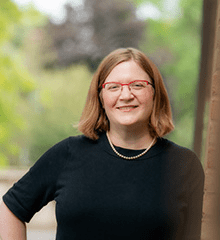Every few years I have the pleasure of teaching “Work, Money, and the Old Testament,” a course developed with funding from the Stewardship Leaders Program here at Luther Seminary. Students in the class often remark on how rare it is in their faith communities to explore the idea of “work”—the day-in, day-out labor, paid or unpaid, that defines the bulk of our waking time—in frank, sustained conversations. The ways our everyday work may or may not glorify God, feed our spiritual lives, and work toward the betterment of God’s world are questions too often left unconsidered.
What the Old Testament says about work
- In the Old Testament, work is a central theological concern.
- In Genesis 1, God works for six days to create the world, then rests from that work on the seventh day.
- In Genesis 2, the first human is placed into the garden “to work (’bd) it and to keep it” (Genesis 2:15).
- Work is a part of Edenic creation, and it is only after the forbidden fruit incident that the first human’s work becomes “toil” (Genesis 3:17).
- Similarly, work is an inherent part of the new creation in Isaiah’s vision: “They shall build houses and inhabit them; they shall plant vineyards and eat their fruit” (Isaiah 65:21). Enjoying the fruits of one’s labor is the cornerstone of a flourishing life.
Flourishing for all
The Isaianic and Edenic visions contrast sharply with the experience of building for another to inhabit (Isaiah 65:22), a condition of destitution written across ancient Israel’s history. The communal memory that most deeply shapes the Old Testament’s theological reflections on work is enslavement in Egypt—a memory always held hand-in-hand with God’s deliverance. In slavery, all of the labor of the Hebrews is stolen by Pharaoh for his own prosperity. God, through Moses, leads the Hebrews away from working (’bd) for Pharaoh and toward serving (’bd) God. That one might build and inhabit does not point toward an “every man for himself” attitude, then, but rather toward the promise of a full and flourishing life for all people.
The enduring practice of sabbath is rooted in both the Hebrews’ experience of deliverance and God’s own experience of rest. The presentation of the sabbath commandment in Exodus is accompanied by the rationale that God rested on the seventh day (Exodus 20:10-11). The Deuteronomic re-presentation of that commandment offers the rationale that “you were a slave in the land of Egypt, and the LORD your God brought you out from there with a mighty hand and an outstretched arm” (Deuteronomy 5:12). In the same way that Christian tradition emphasizes Jesus’ incarnational participation in the human experience, the Hebrew Scriptures witness to God’s shared experiences of both work and rest with humanity, even as they also testify to God’s mighty power to save.
There is, as my students have discovered, a deep hunger in our churches to understand how faith makes a claim upon our whole selves, not just a couple of hours of our time on Sunday mornings. The centrality of work and rest to the theology of the Old Testament offers an invitation to Christian communities to consider together the place of work and rest in the patterns of their own lives, both as individuals and for the community at large.



